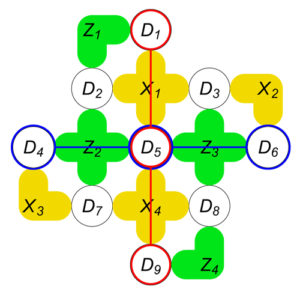Research
More information about these projects is on the Research page, and about the students and postdocs who carried out this work is on the People page.
 Shearing and flowing granular matter: Most recently we have done simulations showing that a pack of soft grains can “remember” its detailed shear history. Previously we used MRI and PFG-NMR to observe the fluctuating motion of grains in the gravity-driven flow of dense granular matter though a vertical channel. In earlier projects we studied the motion of grains and in a bubbling gas-fluidized granular bed, and anomalous granular “heat” flow in a vibrofluidized granular gas.
Shearing and flowing granular matter: Most recently we have done simulations showing that a pack of soft grains can “remember” its detailed shear history. Previously we used MRI and PFG-NMR to observe the fluctuating motion of grains in the gravity-driven flow of dense granular matter though a vertical channel. In earlier projects we studied the motion of grains and in a bubbling gas-fluidized granular bed, and anomalous granular “heat” flow in a vibrofluidized granular gas.
 Quantum fluids and solids at low temperatures and high magnetic fields: In collaboration with Neil Sullivan’s group at the University of Florida we have measured the properties of the effectively one-dimensional Fermi fluid formed by confining 3He to nanopores. Previously we observed the magnetic relaxation and phase separation of 3He impurities in solid 4He, and we have used the NHMFL High B/T facility to observe giant viscosity increases and field-induced spin wave relaxation in highly polarized 3He-4He liquid mixtures. In earlier experiments at UMass we measured spin and momentum transport in 3He systems in bulk and in the pores of silica aerogel.
Quantum fluids and solids at low temperatures and high magnetic fields: In collaboration with Neil Sullivan’s group at the University of Florida we have measured the properties of the effectively one-dimensional Fermi fluid formed by confining 3He to nanopores. Previously we observed the magnetic relaxation and phase separation of 3He impurities in solid 4He, and we have used the NHMFL High B/T facility to observe giant viscosity increases and field-induced spin wave relaxation in highly polarized 3He-4He liquid mixtures. In earlier experiments at UMass we measured spin and momentum transport in 3He systems in bulk and in the pores of silica aerogel.
 Fluids in porous media: We have used MRI to image the displacement of a non-wetting fluid by injection of a wetting fluid in a porous medium, which can form a compact or a fractal front depending upon conditions and flow rate. We also studied local and non-local “hydrodynamic dispersion” of virtual NMR tracers in a fluid flowing through a porous medium.
Fluids in porous media: We have used MRI to image the displacement of a non-wetting fluid by injection of a wetting fluid in a porous medium, which can form a compact or a fractal front depending upon conditions and flow rate. We also studied local and non-local “hydrodynamic dispersion” of virtual NMR tracers in a fluid flowing through a porous medium.
Teaching
 As part of a junior-level quantum course, projects were developed to simulate quantum computers, such as the “surface code” array shown here. On the Teaching page there is also information on a simple experiment showing quantized conductance in nanocontacts, and an invertible pendulum devised by Bessel for measurements of the acceleration of gravity g. This page also has some handy handouts on scientific programming in Python.
As part of a junior-level quantum course, projects were developed to simulate quantum computers, such as the “surface code” array shown here. On the Teaching page there is also information on a simple experiment showing quantized conductance in nanocontacts, and an invertible pendulum devised by Bessel for measurements of the acceleration of gravity g. This page also has some handy handouts on scientific programming in Python.
Contact
Email: candela@physics.umass.edu (more effective than phone)
Phone: 413-545-3666
Mail: Donald Candela, Physics Department, Physics Sciences Building, 690 N. Pleasant St., University of Massachusetts, Amherst, MA, 01003
In person: PSB (Physical Sciences Building) W112 (office), PSB 064 (lab), PSB 122 (mailbox)